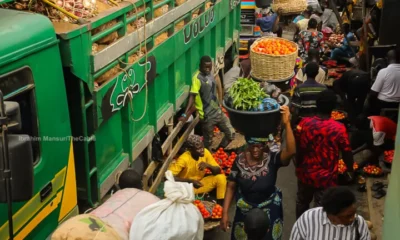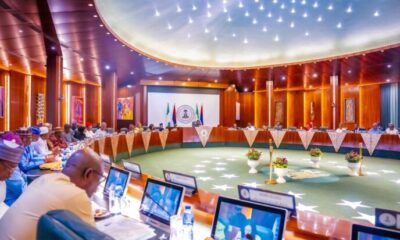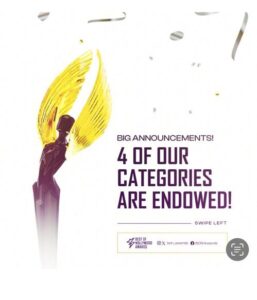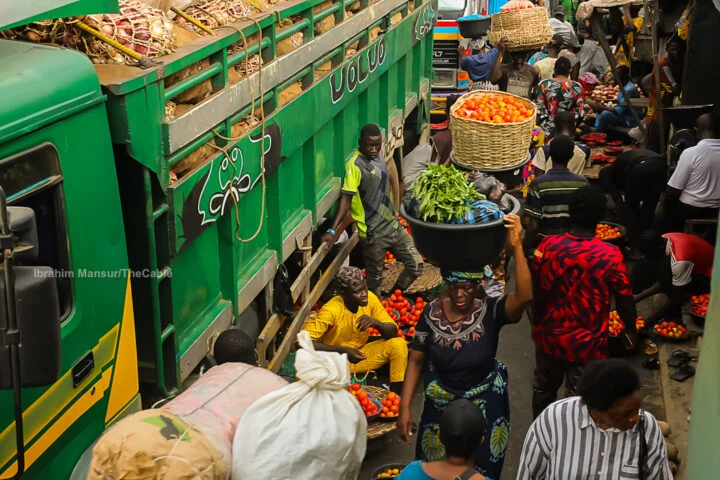Residents of border communities in states including Sokoto, Zamfara, Katsina, Adamawa and Kwara have opted for the CFA franc following the scarcity of the new naira notes across the country.
The residents, including traders and commercial drivers, are also rejecting the old naira notes, insisting that customers who do not have the new redesigned currency must pay for goods and services with CFAs.
The CFA franc is the legal tender in eight West African countries of Benin, Burkina Faso, Côte d’Ivoire, Guinea-Bissau, Mali, Niger, Senegal and Togo, which make up the West African Economic and Monetary Union, otherwise known as the Union Économique et Monétaire Ouest Africaine.
It was gathered that businessmen and traders in the Zurmi and Shinkafi local government areas of Zamfara State, which border the Niger Republic, prefer the franc to the naira.
Investigation revealed that traders in the two LGAs had been selling their commodities in CFA due to fear that they might not get the new naira notes.
A cattle dealer, Musa Shehu, said he stopped receiving the Nigerian currency since the Central Bank of Nigeria announced the deadline for the swap of the N1,000, N500 and N200 notes.
He stated, “I have since stopped receiving the old naira notes because I don’t have an account and I can’t go to the bank.”
A trader in Shinkafi town, who shuttles between Nigeria and Niger Republic, explained that most of his customers paid with the CFA.
“I cannot collect old naira notes and give out my commodities to any customer. But I will collect new naira notes and CFA because I am afraid of losing my money if the time for the exchange expires,’’ the trader, who spoke on condition of anonymity, said.
A grain seller in Dada village in Zurmi Local Government, Muhammadu Isa, disclosed that he stopped selling grains in the Nigerian currency after the CBN’s policy on new naira notes was unveiled.
He said that he sold only to those who possessed CFAs to avoid losing money as ‘’my father did in 1983 when the naira notes were hurriedly changed by the then Major General Muhammadu Buhari regime.’’
Isa explained that his late father lost all his money when Buhari changed the national currency in 1983.
The grain trader insisted that he would not accept the old naira notes as there was no bank or Point of Service terminal in his community where he could withdraw the new currencies.
“You see since our people and those from the Niger Republic are coming to buy the grains with the CFA, I see no reason why I should collect old naira notes. If anybody wants to buy grains from me, he must pay in CFA or forget it. I will not collect old naira notes because I don’t know what to do with them after the expiration of the deadline,” he noted.
In a related development, commercial drivers who ply the Niger Republic from Zurmi and Shinkafi LGAs have also stopped collecting the old notes.
They justified their decision with the argument that the CFA was the only legal tender accepted by the people along the Nigeria-Niger borders.
A driver, Alhaji Hamisu, stated that passengers had to pay in CFA if they wanted to travel to the Niger Republic or return to Nigeria ‘’because the old naira notes are unacceptable as legal tender.’’
Hamisu said, “I have on several occasions refused to collect the old naira notes from my passengers because I have no time to go to the bank or PoS to get the new notes.
“Another problem is that you can’t buy fuel with the old naira notes in Niger republic; as such, no commercial driver on cross-border journeys will agree to take the old notes from passengers.
“I was almost stranded in Malbaza town in Niger Republic when I wanted to buy fuel with the old naira notes because we have been doing so before the change of the Nigerian currency.
“I went to the filling station as usual and bought 30 litres of fuel and brought out the old notes but the fuel attendant told me that he would not accept the notes.
“I pleaded with him but he was not ready to collect the money from me. I was lucky as one of the commercial drivers, who is also my friend, came to buy fuel and he had enough CFAs. I bought the CFA from him and settled the fuel attendant.”
Sokoto Border Traders
Also, our correspondent discovered that border communities in Sokoto State preferred to sell their products in CFA due in part to the non-availability of the new notes and the continuous loss of naira value.
According to The Punch, Mallam Sidi Isa, who trades in cattle in Illela, a border community with the Niger Republic, said he preferred the franc because of the introduction of the new naira notes and the cashless policy.
Also speaking, Mr Jamiu Ola, a motor mechanic, argued that the CFA holds more value than the naira.
“I prefer CFA due to the fact that it is hardly devalued unlike our own naira which has been devalued,” he added.
A businessman, Mallam Haruna Abdulazeez, stated, “I shifted my business to the Niger Republic when I realised I can’t cope with the economy of this country anymore.
“If I buy goods from Nigeria and take same to Niger Republic, I make profits due to the value after the exchange. Even if you take sachet water there, you will make your profits due to the exchange rate.”
A Sokoto resident, Muhammad Auwal, submitted that the CFA holds more value than the naira, hence his preference for foreign currency.
“I normally exchange my naira for CFA as it is not reasonable for someone to keep naira at home due to loss of value,’’ he declared.
Adamawa Cattle Dealers
Speaking in an interview, the Chairman of Mubi International Cattle Market in Adamawa State, Jafaru Hamman, lamented the scarcity of newly redesigned naira notes, adding that the difficulties in getting the currency had affected commerce at the border communities.
The problem, according to him, is that most traders in Mubi are accustomed to cash transactions and the cashless policy may take time to get mass support.
Commenting on the decision of Adamawa communities to opt for the franc over the naira, a cattle dealer, Jafaru Hamman, explained that even before the CBN policy, some traders were using the West African CFA in business transactions.
He, however, noted the volume of trade in foreign currency was minimal before the introduction of the new naira redesign policy.
Jafaru said the development had made it increasingly difficult for most traders to get the new currency, thereby stifling their business operations.
According to him, as the deadline for the naira swap draws closer and the old currency is facing rejection, traders are faced with either accepting the CFA for their transactions or halting their business activities.
He said, “They (Traders) are collecting the naira but since it became increasingly difficult to get new notes, they resorted to collecting CFA. The traders have also refused to accept the old notes. If they come to sell their cattle, if you give them the old notes they will reject it.
‘’They would rather return with their cattle than accept the old notes. Nobody is seeing the new notes because they are scarce. Don’t forget that many of these traders don’t have bank accounts to accept transfers because our business is purely based on cash.’’
Katsina Traders Lament
The situation is not different at the cattle markets in Dankarma, Jibia and Maiadua, all in border communities in Katsina state.
Findings showed that trading was being carried out in these markets in both naira and CFA before the CBN policy.
But the naira notes scarcity had forced the majority of cattle dealers and traders to carry out all transactions in CFA.
However, a few traders accept electronic money transfers from those considered regular customers.
Mallam Ahmadu Ousseini who sells cattle and camels at Maiadua Kara International market, said he carried out most of his transactions in CFA because his customers said they could not get the new naira notes.
Ouseini said. “We accept naira and CFA here at Kara market. But in the past three weeks, I only accepted CFA for my transactions. There are a few customers I still accept cash transfers from as I have a PoS. When we conduct business in the CFA, we gain as the CFA is slightly higher (in value) than the naira.
“It is our customers who source for the CFA which they pay us. There are even those who help us change money in the market but they too cannot get the new naira notes now. This has made us transact business majorly in the CFA.”
Hajiya Bilikisu Ahmed, who is resident in the area but goes to sell cows in Lagos and other South-West cities, explained that the currency scarcity was affecting her business badly.
Ahmed stated, “I buy (cattle) from the dealers at Dankarma and Jibia with the naira. Occasionally, I exchanged my naira notes with the CFA in any of the cattle markets. But now, the scarcity of the new naira notes has worsened the matter.
‘’On Wednesday when I wanted to buy some cattle at Dankarma, I lost N3,000 on the N20,000 I exchanged for the CFA. The situation is compounded by the network challenges in many banks in Katsina. But I collected money from some of my customers down South, especially in Lagos and no matter the situation, I have to deliver to them, otherwise, they may not patronise me again.”
The cattle dealers further complained that the CBN policy had reduced the volume of cows being brought into the market in Borno State.
Recounting his pain, Mohammed Ali, a trans-border cattle merchant in Maiduguri, said, “I used to buy about 20 heads of cattle at Mada (a Cameroon market across the border from Gamboru in Borno State) and sell at least 15 weekly in the Maiduguri market.
“My problems as a cattle merchant are three: the CFA in the Cameroon market, which used to exchange at N560 per CFA, is now N680 per CFA, and in a few instances it is even more. The old naira notes are scarce and the new notes are nowhere to be found.’’
“In this situation, the majority of us have suspended the trade because we deal in hard cash, and it is not available; the sellers of the cattle across the border also deal in hard cash. They don’t accept bank transfers; they don’t even have bank accounts,” Ali explained.
Speaking further, he added, “By my estimates, between 500 to 700 heads of cattle arrive here daily from Chad and Cameroon to meet the number on the ground that has not been sold; but today (Monday, January 30), only about 50, according to what I saw, arrived.
“I sold only one cow today, and that is even on credit; the buyer said he could only pay by the end of February,’’ he lamented.
The chief cattle dealer of Bama, Mohammed Gwamna, said the situation had forced him to stop his cattle business.
“I have suspended the trade, whether trans-border or within the Nigerian border markets. The reason: if you go to the Cameroonian market with N1 million, you have to part with N100,000 to get it changed to CFA or new naira notes to enable you to buy the cattle, otherwise, the sellers will not even look at you.”
Stressing that the naira redesign policy had eroded his business and other people’s livelihoods, Gwamna observed that the cattle population in Maiduguri markets had reduced by about 80 percent.
He added, “By my estimate, this difficult situation has slashed the cattle population in this market by about 80 per cent, because most of us can’t even go to Gubio, Monguno and Gaidam (cattle markets in Borno and Yobe) to buy talk less of Cameroon, Niger or Chad markets because we can’t source the new naira notes. Without the new notes, nobody will even answer your greetings,” he lamented.
Another trader, Abba Ali, noted, “At Monguno, Ngala, Gubio (in Borno State) and Kukareta and Gaidam (in Yobe State), cattle will not be sold to you if you do not brandish new naira notes; and in Cameroon, you must show CFA; and both are not easy to find. This is the situation,” he complained.
“Hitherto, sometimes between 20 and 30 trailers offload cattle daily in this market; but today (Monday, January 30), according to what I have seen so far, only two trailers offloaded,” he observed.
In Ipokia, a border town in Ogun state, traders were said to have been travelling to the Benin Republic to exchange the new currency with CFAs after selling their wares.
A youth leader in Ipokia, Deji Mawuntin, bemoaned the hardship the residents of Ihunbe, Ilara, Oja-Odan and others were going through to get the new notes.
He accused unnamed bank workers of selling the new currencies to racketeers in the Benin Republic.
He noted, “The bankers are selling new naira notes to Beninese and Nigerians are going there to exchange it with CFAs. People have called the DSS operatives to beam their searchlight on these bank officials.”
In Kwara State, in Chikanda, a border town between Nigeria and the Benin Republic, a trader, Alhaji Bashir Mohammed, said he preferred taking CFA as new naira notes were not easily available.
He said, “Since the change from old naira notes to new notes, there has been a shortage of the new notes, we are not getting the new notes, so it is easier to get the CFA than the naira notes, that is why we are accepting the CFA in exchange for our goods.”
Another trader, Mrs Mariam Hassan, who trades in Garri, local rice, beans and yam flour, said that the traders in the border towns were accepting CFA in exchange for their goods.
Mariam who is based in Yashikira in the Baruten local government area of Kwara State said that the traders made more profits when they accepted CFA.
The CBN spokesman, Osita Nwanisobi, had yet to respond to questions on the displacement of the naira by CFA in parts of the country as of the time of filing this report.
But the Managing Director, Cowry Asset Management Limited, Johnson Chukwu, described the move as the logical thing to do in face of the scarce availability of the new notes.
Also, the Chief Executive Officer of the Centre for the Promotion of Private Enterprises, Dr Muda Yusuf, noted that this was natural due to the lack of enough new notes for people to run their businesses in border regions.
Credit: The Punch

 BIG STORY2 days ago
BIG STORY2 days ago
 BIG STORY2 days ago
BIG STORY2 days ago
 BIG STORY1 day ago
BIG STORY1 day ago
 BIG STORY2 days ago
BIG STORY2 days ago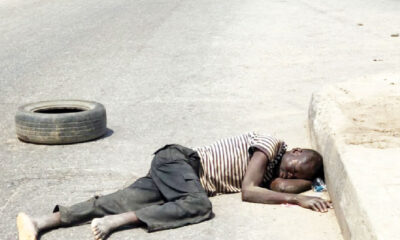
 BIG STORY5 days ago
BIG STORY5 days ago
 BIG STORY4 days ago
BIG STORY4 days ago
 BIG STORY4 days ago
BIG STORY4 days ago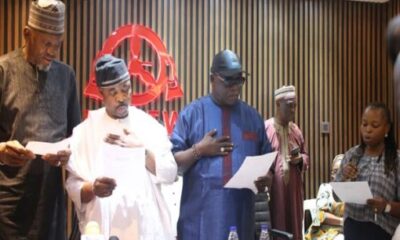
 BIG STORY4 days ago
BIG STORY4 days ago









